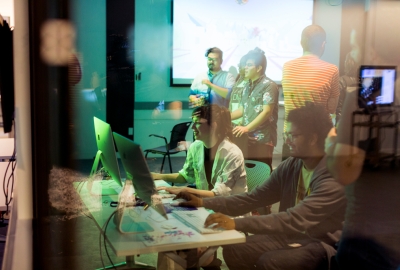Assignments, critiques and demonstrations for the more advanced drawing student. Combines perceptual learning with initial conceptual basics for drawing. This includes line usage, shape inventing, size differentiating, brightness contrast, location, and overlap. Students develop the skill to discuss their drawing as well as the drawing of others and learn to observe and empathize with the genres of landscape, still life, and figure. Individual and group critiques, slide lectures, and museum and gallery visits support studio activities.
Course #
ART-GE 2772
Credits
4
Department
Art and Art Professions


